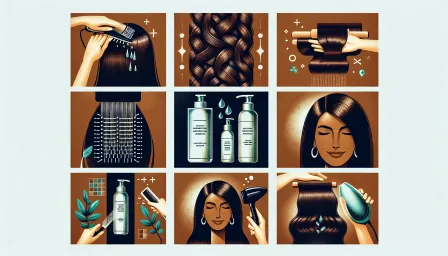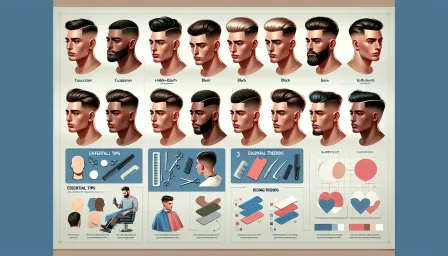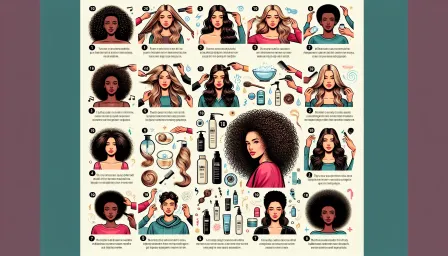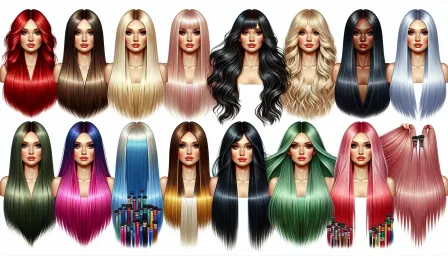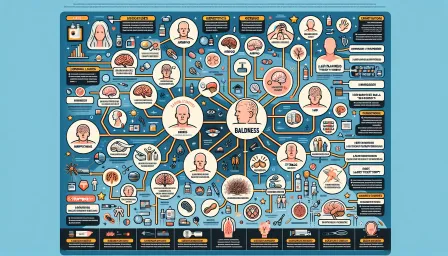DIY Haircare: How to Cut Your Own Split Ends at Home
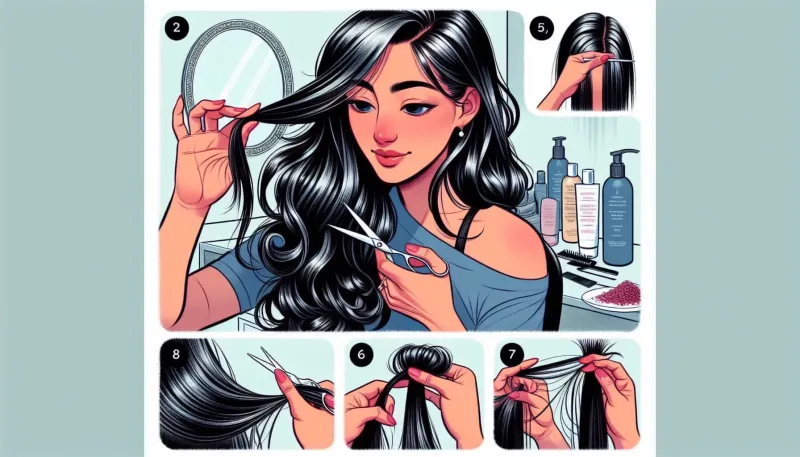
Learn how to cut your own split ends at home with this comprehensive guide. Discover DIY haircare tips to maintain healthy and beautiful hair.
Split ends are a common hair concern that can affect the health and appearance of your hair. While regular salon visits can help manage split ends, it’s possible to take matters into your own hands and trim them at home. This guide will provide you with expert tips and techniques on how to cut your own split ends, ensuring your hair stays healthy and beautiful.
Understanding Split Ends
What Are Split Ends?
Split ends occur when the hair shaft splits or frays, usually at the tip, due to damage or stress. They can result from various factors such as heat styling, chemical treatments, environmental stressors, and mechanical damage.
Why Should You Trim Split Ends?
Trimming split ends is crucial because they can hamper hair growth and lead to further breakage. By regularly removing split ends, you can maintain the overall health and appearance of your hair. Additionally, trimming split ends can prevent the damage from traveling up the hair shaft, safeguarding longer lengths of hair.
Preparing to Cut Your Own Split Ends
Tools You’ll Need
Before you start, gather the following tools to ensure a smooth and effective trimming process:
- Sharp hairdressing scissors
- Wide-tooth comb
- Hair clips or ties
- A hand-held mirror
- Optional: a spray bottle with water
Setting Up Your Workspace
Find a well-lit area with a mirror. Having natural light or a bright lamp will help you clearly see the split ends. You may choose to work in your bathroom or another comfortable space in your home.
Prepping Your Hair
Start by washing and conditioning your hair. This makes it easier to work with and reveals the split ends more clearly. Thoroughly dry your hair before beginning the trim as wet hair can stretch and lead to uneven cuts.
Step-by-Step Guide to Cutting Your Own Split Ends
Step 1: Section Your Hair
Divide your hair into small, manageable sections using hair clips or ties. This makes it easier to identify and trim the split ends without missing any areas.
Step 2: Identify the Split Ends
Work with one section at a time, using a wide-tooth comb to gently detangle your hair. Look closely at the ends of your hair and identify the split or damaged ends. Split ends often appear lighter, frayed, or “feathered.”
Step 3: Trim the Split Ends
Hold the section of hair between your fingers, squeezing lightly. Use your sharp hairdressing scissors to trim about a quarter of an inch above the split end. This ensures that you’ve removed all the damage and prevents further splitting. Always cut at an angle to maintain the hair’s natural look.
Step 4: Repeat and Blend
Continue the trimming process throughout all your sections. Take your time to ensure that you’ve caught all the split ends. After you’ve finished, blend the sections by doing a light trim all over, ensuring an even look.
Step 5: Final Check
Use a hand-held mirror to check the back of your head and make sure you haven’t missed any split ends. Comb through your hair a final time to verify that everything looks even.
Post-Trimming Care
Moisturize Your Hair
After trimming your split ends, it’s important to nourish your hair to prevent further damage. Use a leave-in conditioner or hair serum to provide moisture and protection.
Avoiding Future Split Ends
To minimize future split ends, follow these haircare tips:
- Limit heat styling and use heat protectant sprays.
- Avoid excessive brushing and use a wide-tooth comb.
- Use gentle, sulfate-free shampoos and conditioners.
- Incorporate regular deep-conditioning treatments.
- Wear protective hairstyles to reduce stress on your hair.
When to Seek Professional Help
While trimming your own split ends at home is manageable, there are times when it’s best to consult a professional. If you’re dealing with severe damage, uneven growth, or want a significant change in hairstyle, visiting a salon ensures expert care and precision.
Conclusion
Learning how to cut your own split ends at home can be empowering and budget-friendly. With the right tools, preparation, and techniques, you can maintain healthy and beautiful hair between salon visits. Remember to incorporate healthy hair practices and regular trims into your routine to keep split ends at bay.




